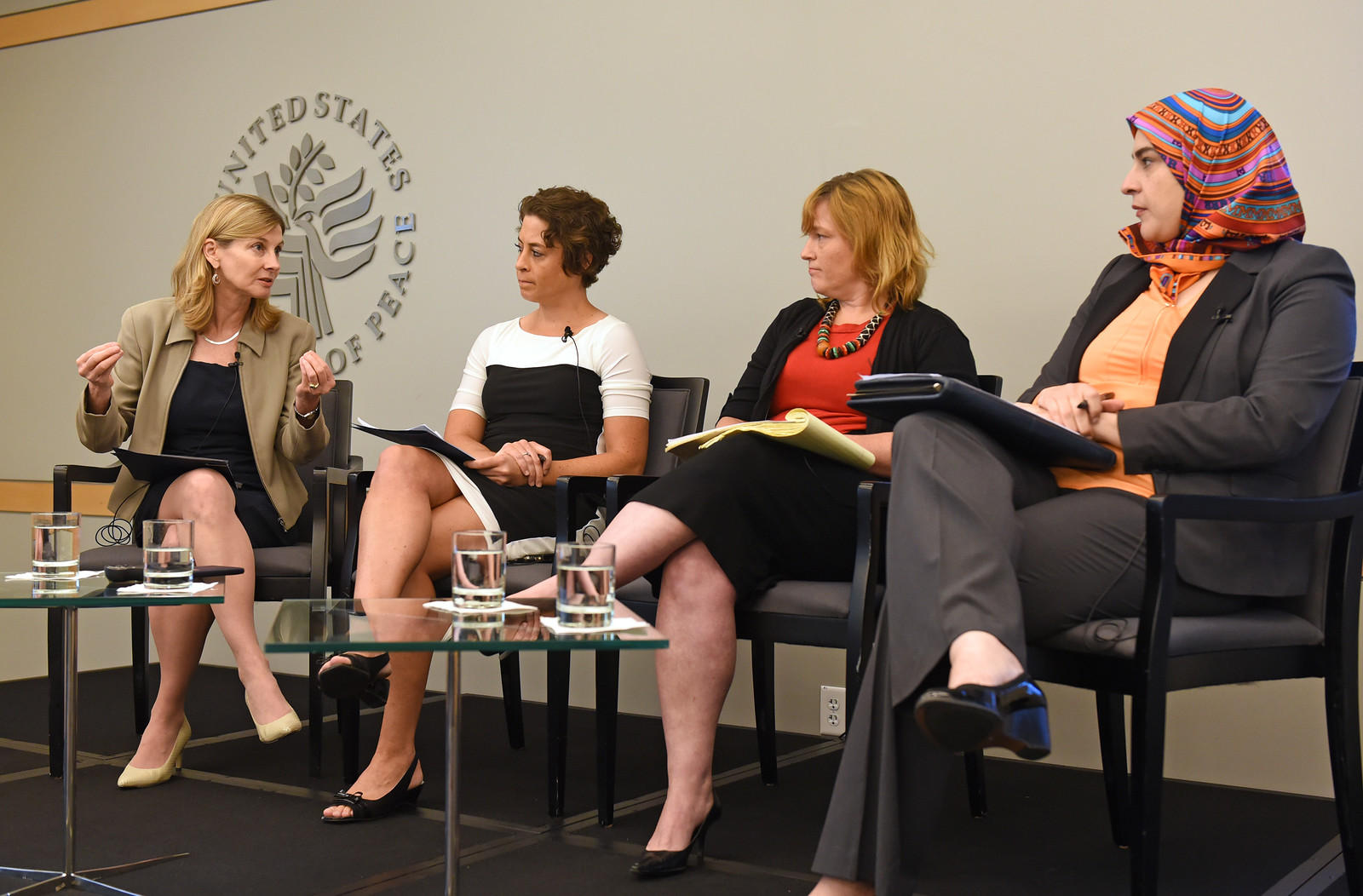Civil Resistance and Peacebuilding: How They Connect
Read the Event CoverageOrganized non-violent citizen movements sometimes use confrontational, even disruptive, tactics such as protests and boycotts, yet such campaigns can contribute to democratic development and long-term peace. On July 16, 2015, USIP President Nancy Lindborg, Kerri Kennedy of the American Friends Service Committee and Manal Omar, Acting Vice President, Center for Middle East and Africa, USIP, discussed the nexus of civil resistance and peacebuilding in the first of a new series by the USIP Global Campus. This event was held in collaboration with the online course, “Civil Resistance and the Dynamics of Nonviolent Movements.”

The rise of nonviolent, people power movements around the world has become a defining feature of the 21st century. While some have deteriorated into violent conflict, organized citizen campaigns using nonviolent methods are challenging formidable opponents: unaccountable governance, systemic corruption, institutionalized discrimination, environmental degradation, dictatorship, foreign military occupation, and violent extremism. Their “weapons” are not guns or bombs, but rather protests, boycotts, sit-ins, civil disobedience, building of alternative institutions, and hundreds of other nonviolent means. Combined with the use of traditional political and legal approaches, these movements continue to shape political, social, and economic change across the globe.
This panel explored how nonviolent civil resistance and peacebuilding reinforce each other, and how civic mobilization fits into the larger peacebuilding agenda. The panel also discussed how nonviolent campaigns and movements have contributed to long-term peace and stability, and the theoretical and practical linkages that prevent violent conflict and advance a “just peace”. Comments and the recorded panel are available for viewing on Twitter with #USIPGC, or on YouTube.
Speakers
- Nancy Lindborg, Welcoming Remarks & Panelist
President, U.S. Institute of Peace - Kerri Kennedy, Panelist
Associate General Secretary for International Programs, American Friends Service Committee - Manal Omar, Panelist
Acting Vice President, Center for Middle East and Africa, U.S. Institute of Peace - Maria Stephan, Moderator
USIP Senior Policy Fellow, author of Why Civil Resistance Works



